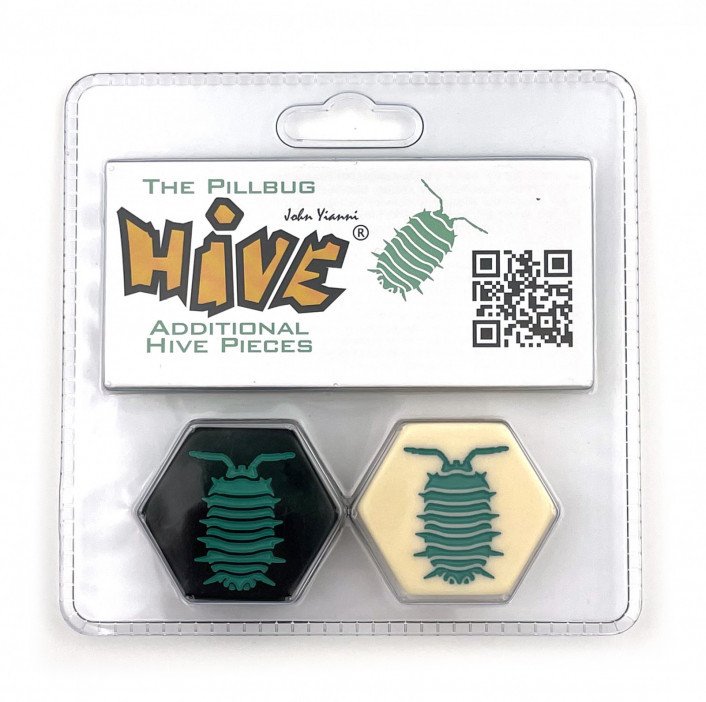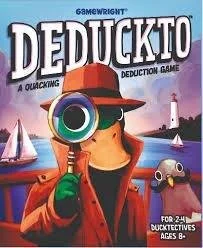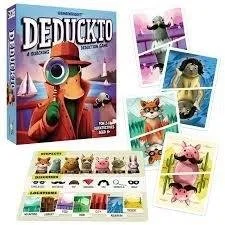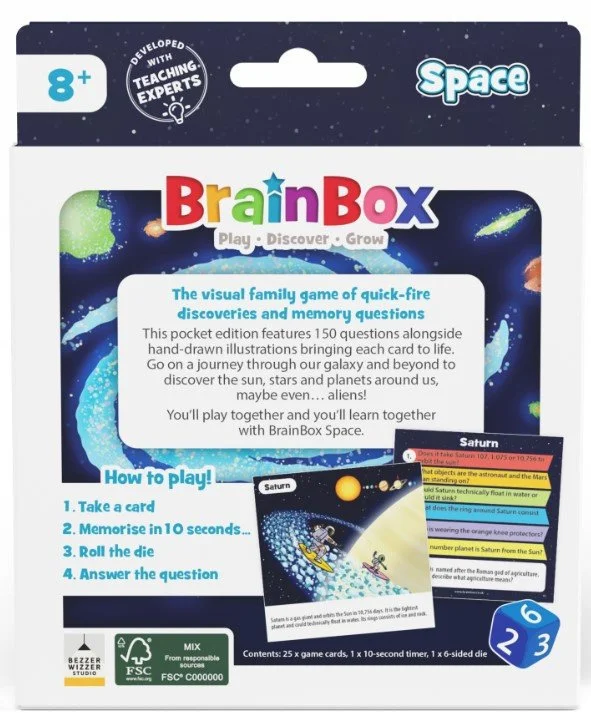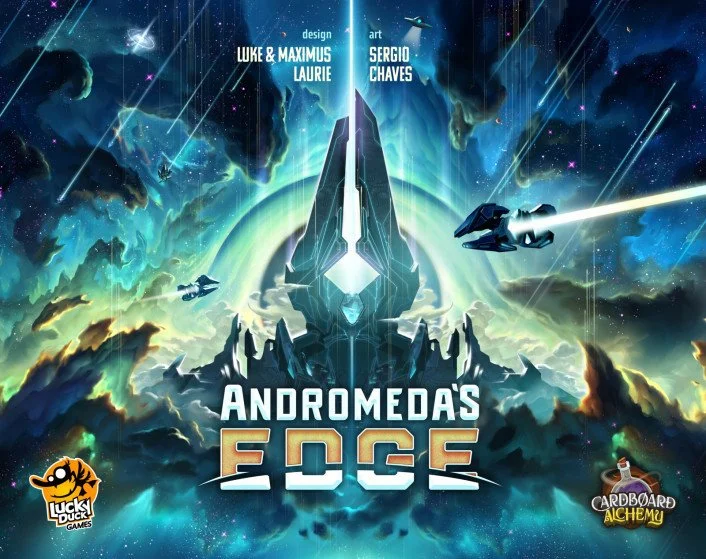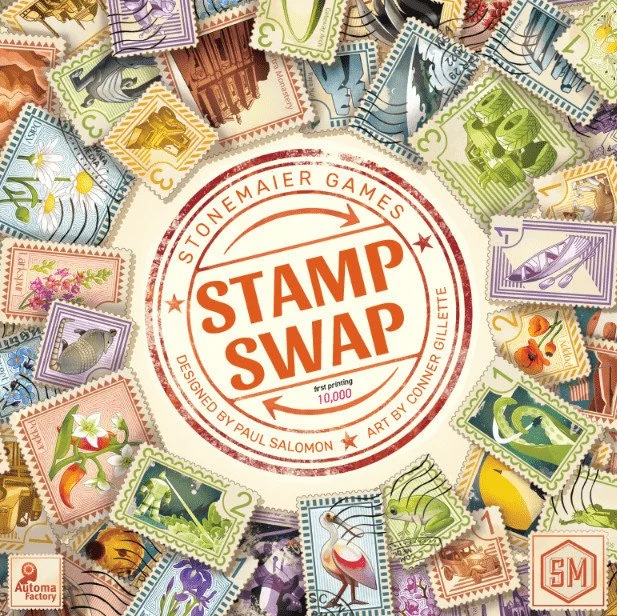Le Havre
In Le Havre, a player’s turn consists of two parts: First, distribute newly supplied goods onto the offer spaces; then take an action. As an action, players may choose either to take all goods of one type from an offer space or to use one of the available buildings. Building actions allow players to upgrade goods, sell them or use them to build their own buildings and ships. Buildings are both an investment opportunity and a revenue stream, as players must pay an entry fee to use buildings that they do not own. Ships, on the other hand, are primarily used to provide the food that is needed to feed the workers.
After every seven turns, the round ends: players’ cattle and grain may multiply through a Harvest, and players must feed their workers. After a fixed number of rounds, each player may carry out one final action, and then the game ends. Players add the value of their buildings and ships to their cash reserves. The player who has amassed the largest fortune is the winner.
AWARDS & HONORS
2014 Gra Roku Advanced Game of the Year Nominee
2011 Ludoteca Ideale Official Selection Winner
2010 Lys Passioné Finalist
2010 Japan Boardgame Prize Voters' Selection Nominee
2010 Games Magazine Best New Advanced Strategy Game Winner
2010 As d'Or - Jeu de l'Année Nominee
2009 Tric Trac Nominee
2009 Tric Trac d'Argent
2009 JoTa Best Heavy Board Game Nominee
2009 JoTa Best Heavy Board Game Critic Award
2009 JoTa Best Heavy Board Game Audience Award
2009 Japan Boardgame Prize Voters' Selection Nominee
2009 International Gamers Awards - General Strategy; Multi-player Winners
2009 Hra roku Nominee
2009 Golden Geek Most Innovative Board Game Nominee
2009 Golden Geek Best Gamers' Board Game Nominee
2009 Golden Geek Best Gamer's Board Game Winner
2009 Golden Geek Best 2-Player Board Game Nominee
2009 Deutscher Spiele Preis Best Family/Adult Game 2nd Place
2008 Meeples' Choice Award
2008 Jogo do Ano Nominee
In Le Havre, a player’s turn consists of two parts: First, distribute newly supplied goods onto the offer spaces; then take an action. As an action, players may choose either to take all goods of one type from an offer space or to use one of the available buildings. Building actions allow players to upgrade goods, sell them or use them to build their own buildings and ships. Buildings are both an investment opportunity and a revenue stream, as players must pay an entry fee to use buildings that they do not own. Ships, on the other hand, are primarily used to provide the food that is needed to feed the workers.
After every seven turns, the round ends: players’ cattle and grain may multiply through a Harvest, and players must feed their workers. After a fixed number of rounds, each player may carry out one final action, and then the game ends. Players add the value of their buildings and ships to their cash reserves. The player who has amassed the largest fortune is the winner.
AWARDS & HONORS
2014 Gra Roku Advanced Game of the Year Nominee
2011 Ludoteca Ideale Official Selection Winner
2010 Lys Passioné Finalist
2010 Japan Boardgame Prize Voters' Selection Nominee
2010 Games Magazine Best New Advanced Strategy Game Winner
2010 As d'Or - Jeu de l'Année Nominee
2009 Tric Trac Nominee
2009 Tric Trac d'Argent
2009 JoTa Best Heavy Board Game Nominee
2009 JoTa Best Heavy Board Game Critic Award
2009 JoTa Best Heavy Board Game Audience Award
2009 Japan Boardgame Prize Voters' Selection Nominee
2009 International Gamers Awards - General Strategy; Multi-player Winners
2009 Hra roku Nominee
2009 Golden Geek Most Innovative Board Game Nominee
2009 Golden Geek Best Gamers' Board Game Nominee
2009 Golden Geek Best Gamer's Board Game Winner
2009 Golden Geek Best 2-Player Board Game Nominee
2009 Deutscher Spiele Preis Best Family/Adult Game 2nd Place
2008 Meeples' Choice Award
2008 Jogo do Ano Nominee
In Le Havre, a player’s turn consists of two parts: First, distribute newly supplied goods onto the offer spaces; then take an action. As an action, players may choose either to take all goods of one type from an offer space or to use one of the available buildings. Building actions allow players to upgrade goods, sell them or use them to build their own buildings and ships. Buildings are both an investment opportunity and a revenue stream, as players must pay an entry fee to use buildings that they do not own. Ships, on the other hand, are primarily used to provide the food that is needed to feed the workers.
After every seven turns, the round ends: players’ cattle and grain may multiply through a Harvest, and players must feed their workers. After a fixed number of rounds, each player may carry out one final action, and then the game ends. Players add the value of their buildings and ships to their cash reserves. The player who has amassed the largest fortune is the winner.
AWARDS & HONORS
2014 Gra Roku Advanced Game of the Year Nominee
2011 Ludoteca Ideale Official Selection Winner
2010 Lys Passioné Finalist
2010 Japan Boardgame Prize Voters' Selection Nominee
2010 Games Magazine Best New Advanced Strategy Game Winner
2010 As d'Or - Jeu de l'Année Nominee
2009 Tric Trac Nominee
2009 Tric Trac d'Argent
2009 JoTa Best Heavy Board Game Nominee
2009 JoTa Best Heavy Board Game Critic Award
2009 JoTa Best Heavy Board Game Audience Award
2009 Japan Boardgame Prize Voters' Selection Nominee
2009 International Gamers Awards - General Strategy; Multi-player Winners
2009 Hra roku Nominee
2009 Golden Geek Most Innovative Board Game Nominee
2009 Golden Geek Best Gamers' Board Game Nominee
2009 Golden Geek Best Gamer's Board Game Winner
2009 Golden Geek Best 2-Player Board Game Nominee
2009 Deutscher Spiele Preis Best Family/Adult Game 2nd Place
2008 Meeples' Choice Award
2008 Jogo do Ano Nominee





